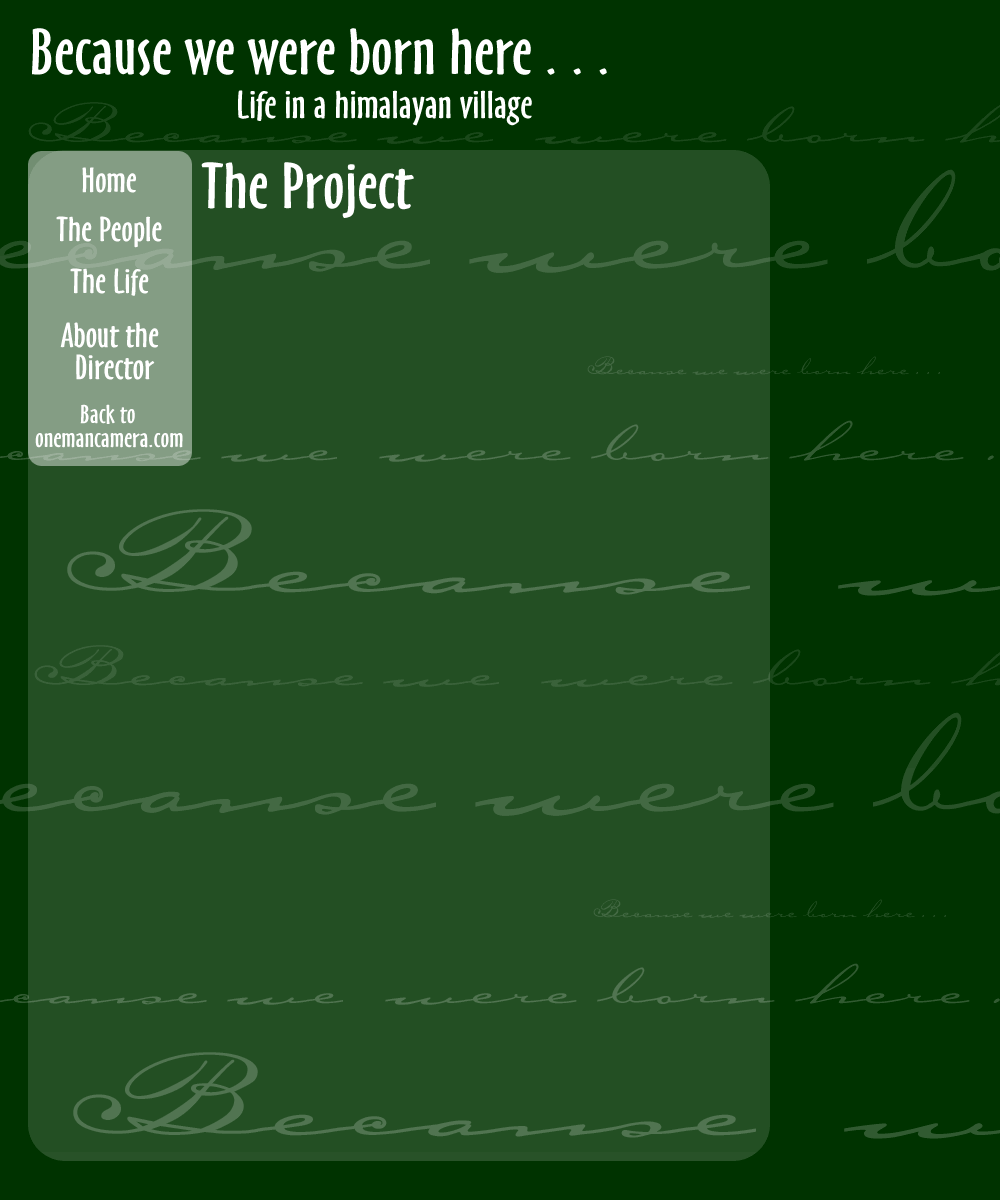|
The people of the project village are Khulung Rai, one of the 33 ethnic
groups that make up Nepal's diverse population. Life in this remote
village is blessed by cooperation and simplicity, but complicated by
the burdens of isolation and terrain. Daily activities are work centered,
punctuated with ceremonies, stories and songs. In contrast to the nationalized
Hinduism of Nepal, the Khulung maintain their unique animist religion,
their language, and their cultural heritage, but it is not easy. With
few natural water sources, no electricity, no roads or healthcare and
a limited food supply, the community is eager for development. Because we were born here . . . was conceived in 1995 while I was working as an Agriculture Extension Agent for His Majesty's Government of Nepal. Like most development workers, I wondered where my efforts were leading and what positive and negative results might come from the development community's plan to "modernize" Nepal. As an experienced filmmaker with a B.F.A. from New York University's film school, my instincts naturally brought me to documentary film. Film is one of the most powerful mediums for compressing time and providing vivid juxtapositions of ideas and action. As Nepal embraces a "western" model of development, this project will record the process of change. Phase One, 2000 has already taken place on schedule. In February of 2000, I returned to Nepal for five months of shooting in the village of Benchong in Nepal. In addition to 34 hours of digital videotapes (including 17 hours of interviews), more than 200 pages of field notes and drawings, a complete census and photographic record of every villager and household, a random sample survey, 10 personal diaries recorded by teenage boys and girls in the village, 13 essays written by 4th and 5th grade children, audio recording of ceremonies and songs, and more than 500 still photographs have been collected. It is a massive amount of primary data that will produce six documentary films in thirty years, a book in later days, and who knows what else? |
|
|
 Because
We Were Born Here . . . is an ethnographic project currently
underway in northeastern Nepal. This 30 year project seeks to document
in sound and images, the living history of one Himalayan village as
it struggles to 'develop' itself and join the 'modern' world. With the
full co-operation of the community, documentary video, photographs,
interviews, diaries and other primary source material is being compiled
every six years in an effort to promote cultural understanding and education.
Because
We Were Born Here . . . is an ethnographic project currently
underway in northeastern Nepal. This 30 year project seeks to document
in sound and images, the living history of one Himalayan village as
it struggles to 'develop' itself and join the 'modern' world. With the
full co-operation of the community, documentary video, photographs,
interviews, diaries and other primary source material is being compiled
every six years in an effort to promote cultural understanding and education.
